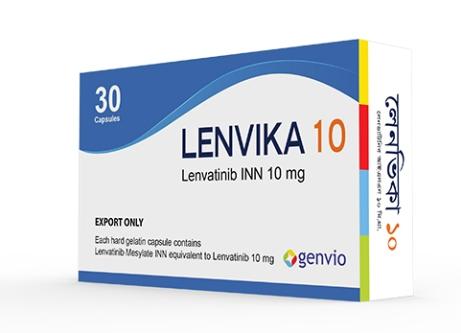Unlocking the Potential of Lenvatinib Mesilate API in Cancer Therapy

In the relentless pursuit of effective cancer treatments, pharmaceutical innovations continue to play a pivotal role. Lenvatinib mesilate, an active pharmaceutical ingredient (API), has emerged as a promising therapeutic agent, particularly in the field of oncology. This article explores the intricacies of Lenvatinib Mesilate API, shedding light on its mechanism of action, clinical applications, and its potential impact on cancer treatment.
Understanding Lenvatinib Mesilate API
Lenvatinib mesilate is a molecularly targeted therapy that belongs to the class of tyrosine kinase inhibitors (TKIs). This API is designed to inhibit the activity of multiple receptor tyrosine kinases (RTKs) involved in cancer progression and angiogenesis. Specifically, Lenvatinib targets vascular endothelial growth factor receptor (VEGFR), fibroblast growth factor receptor (FGFR), platelet-derived growth factor receptor (PDGFR), and others, disrupting signaling pathways that contribute to tumor growth and metastasis.
Mechanism of Action
The key to Lenvatinib's efficacy lies in its ability to simultaneously target multiple pathways crucial for cancer cell survival and proliferation. By inhibiting VEGFR, Lenvatinib disrupts angiogenesis – the process by which tumors develop new blood vessels to sustain their growth. Inhibition of FGFR and PDGFR further hampers the tumor microenvironment, impeding cancer progression.
Clinical Applications
Lenvatinib mesilate has gained approval for the treatment of various cancers, marking a significant advancement in oncology. Its primary indications include:
Thyroid Cancer: Lenvatinib is used for the treatment of locally recurrent or metastatic, progressive, radioactive iodine-refractory differentiated thyroid cancer. By targeting VEGFR, it combats angiogenesis, a hallmark of thyroid cancer progression.
Renal Cell Carcinoma: In combination with another targeted therapy, Lenvatinib is approved for the treatment of advanced renal cell carcinoma. Its multitargeted approach offers a comprehensive strategy against the diverse pathways involved in renal cancer development.
Hepatocellular Carcinoma: Lenvatinib has demonstrated efficacy in the treatment of advanced hepatocellular carcinoma, providing an alternative therapeutic option for patients with limited treatment choices.
Potential Advancements and Considerations
As researchers continue to delve into the potential applications of Lenvatinib mesilate API, ongoing clinical trials explore its effectiveness in various cancer types. Combining Lenvatinib with other agents, such as immunotherapies, is an area of active investigation, aiming to enhance treatment outcomes and expand the therapeutic spectrum.
It is crucial for healthcare providers to consider individual patient factors, including the cancer type, stage, and overall health, when prescribing Lenvatinib mesilate. Monitoring for potential side effects, such as hypertension and fatigue, is essential to ensure the optimal balance between therapeutic benefits and manageable adverse events.
Conclusion
Lenvatinib mesilate API represents a significant stride in the landscape of cancer therapeutics. Its multitargeted approach, inhibiting key pathways in tumor growth and angiogenesis, holds promise for improved outcomes in patients with various types of cancer. As ongoing research unfolds the full potential of Lenvatinib, its role in personalized cancer treatment is likely to expand, offering new hope to individuals facing the challenges of advanced malignancies.
- Art
- Causes
- Crafts
- Dance
- Drinks
- Film
- Fitness
- Food
- Giochi
- Gardening
- Health
- Home
- Literature
- Music
- Networking
- Altre informazioni
- Party
- Religion
- Shopping
- Sports
- Theater
- Wellness


